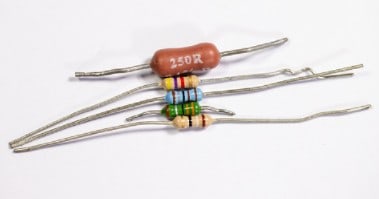Are you torn between 8-ohm speakers and 4-ohm speakers for your car audio?
Do you even know the difference between the two, let alone which is superior?
This article will give you a quick rundown of each speaker's size.
Speakers are truly amazing devices; they convert power from an electrical signal into sound waves that our ears can detect.
The two most common are 4 ohms and 8 ohms.
But how do they differ?
Let us dive in.
4 ohm vs 8 ohm speakers – What's the difference?

The difference is that a 4-ohm speaker has less resistance than an 8-ohm speaker.
What exactly does this mean?
If you use the same settings for a 4 ohm and an 8-ohm speaker, the 4 ohms will play at a much higher volume than the 8-ohm speaker. It will also be clearer and less distorted.
Speakers with a resistance of 4 ohms use less power than speakers with a resistance of 8 ohms. However, it may require more power to produce the same volume as an 8-ohm speaker.
The impedance of a speaker is measured in ohms.
When connected to an amplifier, each speaker will have a resistance of 4 ohms.
Another common speaker rating is 8 ohms, which means that when connected to an amplifier, the speaker will have a resistance of 8 ohms.
What exactly is speaker impedance?
The resistance of a speaker to the flow of electrical current is measured by its impedance.
In other words, it is the amount of resistance a speaker provides to the flow of electricity.
The greater the impedance rating, the greater the amount of opposition the speaker will present.
Why is impedance important?

The main reason that impedance is important is that it influences how much power your amplifier can supply to your speakers.
If you choose speakers with an impedance load that is too low for your amplifier, the power will be insufficient, and your amplifier will be damaged as it struggles to keep up with demand.
Choosing a speaker with an impedance that is too high, on the other hand, may result in under-powering.
The amount of power that the speaker can handle is the difference between the two ratings.
[Speakers with an impedance of eight ohms can handle more power than speakers with an impedance of four ohms.]
This is because the speaker's impedance (resistance) is lower at 8 ohms, allowing more current to flow through it.
Can I run 4-ohm speakers on an 8-ohm amp?
It is possible, but it is not recommended.
If you do, the amplifier will generate more heat and may become damaged or fail.
It is always preferable to use the impedance rating for which the amplifier was designed.
What happens if you use 8-ohm speakers on a 4-ohm receiver?

The impedance will be doubled if you use 8-ohm speakers with a 4-ohm receiver. This means that the current flowing through the speaker will be cut in half, as will the speaker's power handling capacity.
Are 4 ohms speakers are better sound than 8-ohm speakers?
The materials used in the construction, the design of the speaker, and how good it sounds to your ears are what make a speaker sound better.
In general, if you're looking for high-end car audio speakers, 8-ohm speakers are more likely to be considered 'high-end.'
Is 8 or 4 ohms better?
This depends on how you intend to use the speakers.
If you want a more powerful speaker that can handle more wattage, 8 ohms would be a better choice.
If you want a lower-powered speaker that doesn't require as much power to run, 4 ohms is a better option.
Bottomline: It all depends on how you intend to use the speakers.
Series and parallel connections
When you connect speakers to an amplifier, you can do so in two ways: series connections and parallel connections.
In a series connection, one speaker (blue) is linked to another (red), and the two are linked to the amplifier.
All of the speakers (blue, red, and green) are connected to the same speaker wire in a parallel connection.
You connect your amplifier to the end of that single speaker wire.
FAQs on 8 Ohm vs 4 Ohm
It all depends on how you intend to use the speaker. While 8 ohms is preferable for high-power applications, 4 ohms is preferable for low-power applications.
No, not always. 4-ohm speakers are best for low-power applications, while 8-ohm speakers are best for high-power applications. It all comes down to what you intend to use the speaker for, which will determine whether or not it sounds good.
No, not at all. For high-powered applications, 8 ohms is preferable, while 4 ohms is preferable for low-powered applications. Higher ohms do not imply a better-sounding speaker.
Again, it is dependent on how you intend to use the speaker. If you want a more powerful speaker that can handle more wattage, 8 ohms would be a better choice. If you want a lower-powered speaker that doesn't require as much power to run, 4 ohms is a better option.
The amount of resistance a speaker has when connected to an amplifier is referred to as its impedance. The impedance of a speaker is measured in ohms, with 8 ohms being the most common. Lower ohm speakers are typically used for low-powered applications, whereas higher ohm speakers are commonly used for high-powered music systems.
Wrap up
I hope you found this article to be beneficial.
You now understand what impedance means, the difference between 8-Ohm and 4-Ohm rating, which is better, and that it all depends on what you intend to use the speaker for and how power-hungry your system is.
If you're in the market for new speakers, you should be aware of their impedance.
The amount of power that an amp or receiver can deliver to a speaker before clipping and distortion level is referred to as speaker impedance.
8 ohms and 4 ohms are the most common impedance levels.
It's also worth noting that if you have an amplifier with a higher output than your speakers require (8 vs. 4), your system will run louder but not deliver more bass response or better sound quality—so don't buy expensive equipment thinking it'll make a difference.
Read Also:
- 6 Best Budget Subwoofer for Cars in 2025 (Bass-Heavy)

